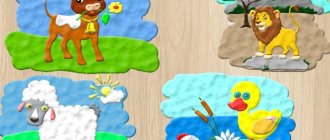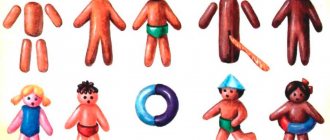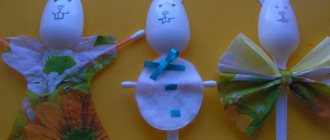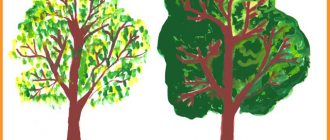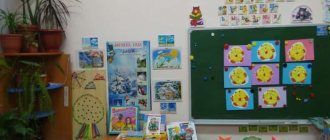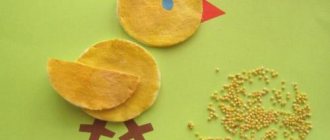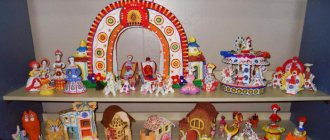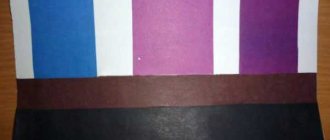Dymkovo lady from a plastic bottle and plasticine. Master class with step-by-step photos
Dymkovo lady made of plasticine. Master Class
Master class with step-by-step photos: do-it-yourself decorative toy made of plasticine using waste material.
Author: Anastasia Vladimirovna Sadkovkina, teacher of fine arts and technology, Secondary School No. 121, Moscow. Description: The material can be useful to teachers, parents, and anyone who is interested in creativity. Purpose: as a gift, interior decoration, work for an exhibition. Goal: modeling of the Dymkovo lady from plasticine. Objectives: - expand theoretical knowledge about Dymkovo toys, traditions of form and painting, pattern, ornament;
— to cultivate in children taste, a sense of color, and respect for the work of Dymkovo craftsmen. - develop creative and cognitive activity, artistic imagination and taste; — develop fine motor skills of the hand, skills of correct work with plasticine; — improve skills in working with different materials and tools. Dymkovo lady.
In the old days, many people couldn’t afford to buy a toy. And children always want to play. And in the suburbs and villages there were wonderful inventors and craftsmen. “Children’s fun” was made from all sorts of things—toys! From washcloths, rags, wood, straw. Well, where the potters lived, they sculpted from clay. And in one village, potters organized an original clay craft, came up with a clay toy and named it after their village - Dymkovskaya.
All toys are not simple, but magically painted.
Snow-white, like birch trees, Circles, stripes. A seemingly simple pattern, But I can’t take my eyes off it. The Dymkovo toy is hand-painted and the simple pattern invented by the master is never repeated, so it is impossible to find two identical toys. That is, no, and there are no two identical products. Each toy is unique and one of a kind. The toys made by Dymkovo craftsmen turn out to be unusually beautiful, bright, fabulous, and magical. People believed that these toys protected them from misfortunes and troubles. Therefore, they were made not only for the fair for decoration and games, but were used as a talisman and placed between the windows of the house in winter. Dymkovo craftswomen keenly noticed the features of clothing and, based on their observations, created images that were conventional in form. Over time, fashion became more universal, losing the features of folk style, and the Dymkovo toy remained a unique reflection of the clothing of bygone eras. The patterns on the clothes also corresponded to the patterns on real fabrics - plain-dyed, checkered, polka-dot and small flowers, and painting elements - the simplest geometric elements: circles, rings, stripes, snakes.
A strictly geometric ornament is built according to a variety of compositional schemes: cells, stripes, circles, dots are applied in various combinations. Bizarre combinations of simple decorations in color, size, and alternations with each other allow you to create charming and amazingly diverse painting compositions. This can be easily demonstrated using a cut-out model of the Dymkovo toy and insert elements painted with traditional patterns of the Dymkovo outfit.
The Dymkovo toy is characterized by the use of symbolism that strives for beauty, truth and a healthy life.
All the patterns in the traditional Dymkovo toy are iconic, associated with nature and amulets. For example, a ring is a talisman, a circle with intersecting stripes are solar solar signs. Dots in a circle or alternating dots with a circle are signs of seeds and embryos, a stripe is a road or river, black dots are human traces. It is important to know the meaning of color. The color green in popular belief is associated with the concept of life and symbolizes nature, earth, arable land. White has always been associated with the concept of moral purity, truth and goodness. Red color is not only a symbol of fire, but also of beauty, strength, glory, and health. Blue is the color of the sky. The Dymkovo toy is a truly unique and amazing handmade gift! This craft will bring pleasure not only to you and your children, but also to those around you. Equipment and materials: plastic bottle with a capacity of 0.5 (0.6; 1) l (upper part “skirt” with a lid), plasticine, modeling board, stack, napkins.
Progress of the master class:
For sculpting we need a frame - the upper part of an ordinary plastic bottle, its shape resembles the skirt of a Dymkovo lady.
Carefully cut off the top of the bottle, leaving the cap in place so that the plasticine does not fall inside. The frame for the Lady is cut off for the children at home by their parents.
Depending on what shape the bottle has, the Lady will have the same shape.
The traditional appearance of toys is created by painting on a chalk white background - this is the color of purity. 1. We begin work with a drawing on the skirt - applying a white background. Knead a piece of white plasticine well so that it is very soft. Roll out the sausage and give it the shape of an icicle. Spread the sausage in a strip along the “skirt” from the neck to the base, with the widened part towards the bottom. Smear the plasticine in the shape of a cone. We trim the uneven edges with a stack. 1) Leaving small gaps, we “draw” four wedges. For a geometric pattern, plasticine will suit any color. But it is better to take the colors traditionally used to paint the lady: red, orange, green, yellow, blue, cyan. 2) We take red plasticine - the color of the sun. Roll out thin sausages and, spreading from top to bottom, fill the gaps between the wedges. 3) We encircle the bottom of the skirt with a strip of red plasticine. In one place between two white wedges we fill the gap with white plasticine - a place for the future apron. 4) Draw a checkered pattern on the skirt with transverse strips of red plasticine.
5 - 6) We complete the geometric pattern with strips of orange plasticine. We continue painting the lady’s skirt with traditional rings and circles. Roll out sausages from red, white and orange plasticine. The circles must be the same size; to do this, the collected amount of plasticine must be divided into equal parts. Roll them into small balls. 1) Place a ball of red plasticine in the middle of the cell. 2) Flatten it, pressing it into the base and on top, place a white ball. 3) We repeat the operation, turn the circle into a ring, and place an orange ball in the center. 4) “Draw” the traditional Dymkovo pattern. We make it flat, creating the effect of a drawn pattern.
We paint the entire skirt with this pattern. We decorate the apron with a frill. From white plasticine we make a sausage with a thickness of 0.5 cm and a length of about 10-15 cm. We get a flat ribbon that can be easily assembled. We apply the frill to the skirt and smooth it, trying not to wrinkle the part.
Using green plasticine we draw a pattern on the red stripes.
We decorate the aprons with an elegant pattern. Using dots of orange plasticine, we draw grains on the apron pattern. 2. The second step is to create the base of the torso. The base is created from a lump of plasticine. Roll a ball of the required size and stick it around the bottle cap.
Roll out the sausage using your hands. We place the yoke on the lady’s torso and apply it. 1) Form a head from white plasticine. 2) Attach to the torso. 3) Apply it and give it the shape of a bodice.
From green plasticine we fashion a strip in the form of a ribbon and add waviness. Making a collar. We draw a decoration on the neck - beads. We make a beautiful hairstyle for the doll. 1) We make flagella from thin sausages. 2) We place a wreath on the head from individual flagella. 3) At the back we attach a flagellum in the form of a braid. 4) Twisting in a spiral, we make a bun.
We make a headdress. 1) We sculpt the elements of the kokoshnik. We fashion separate parts from the balls: a part in the form of a crescent and a strip in the form of a ribbon, slightly bending it to give it a waviness. 2) We connect all the parts, smear and smooth. 3) Form a kokoshnik.
We draw patterns on the kokoshnik. We make earrings. Let's draw a face.
And here is the girl in the crown, with a blush on her face, looking pretty, standing without breathing.
Our hands are like pretzels, our cheeks are like apples. All the people at the fair have known us for a long time. In the 19th century, Dymkovo ladies appeared with babies, birds, baskets of pies, a rocker and other household items. We will also add one more detail to our toy. We sculpt for the lady a pretzel or a dog or a loaf or an object that you like best and suits your unique lady.
We are painted toys - Vyatka laughter, Sloboda dandies, townsfolk gossips.
We are noble toys, foldable, okay. We are famous everywhere, and you will like us too.
We recommend watching:
Master Class. Crafts made from salt dough Dymkovo young lady
Lesson with older preschoolers. Dymkovo toy Dymkovo young lady made from salt dough Master class with step-by-step photos. Making and painting the Dymkovo young lady
Similar articles:
Master class for preschool teachers. Dymkovo lady
Materials for making folk toys
Traditionally, handicrafts are made from clay. But other options are also possible - plasticine and salt dough. In this case, the difference is only in the material; the young lady herself) does it with her own hands in the same way as traditional samples.
In classes with children, when organizing joint creativity, you can choose any of three materials. Each has its own advantages and disadvantages. Modeling the Dymkovo young lady in stages - repeating the same operations.
Clay, the most common material, requires a lot of effort and special equipment, but the products are durable and the most reliable, close to the original.
Children do not really like working with cold, wet and capricious clay, which must be constantly wetted during the work process; they prefer warm and soft plasticine or pliable dough.
Preparing flour mixture for additional elements
Recipe for making dough for small parts:
- flour, well sifted - 1.5 cups;
- fine salt - 1 glass;
- glycerin - 4 tablespoons (tablespoons);
- wallpaper glue or starch - 2 tablespoons;
- water - 150-125 ml.
When preparing the mixture, you can use kitchen appliances, such as a mixer, to make the task easier. You can add food coloring to the dough, and then the manufacturing process will be similar to working with colored plasticine.
All stages of forming elements and sculpting are similar to the classical rules. The dough behaves in your hands like clay and plasticine. For the best result, you should knead the mass with a dense consistency and moderately elastic. In this case, all the frills will not lose their shape, and the body will retain the desired shape.
